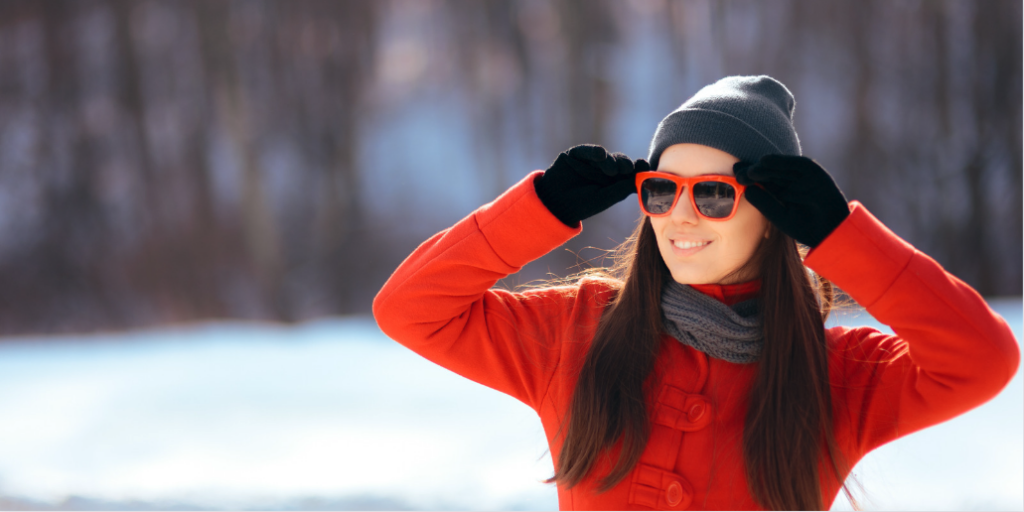
As we move from fall into winter, many things change – the weather gets colder, the days get shorter, and the snow falls! Winter weather can dramatically affect our eye health and our vision care. To get you ready for “Winter Wonderland” weather, we asked Dr. Johnna Hobbs to tell us more about how winter weather affects our eyes and what we can do to protect our vision.
As we enter the Minnesota winter months, how will the weather affect our eyes?
One of the main weather conditions that affects our eyes in the winter is the dryness of the outside air. In addition, as we turn on the heat in our homes, the air gets drier inside too! This can cause our eyes to feel itchy and sensitive. Another winter weather factor is that the sun stays lower on the horizon in the winter, which can make sensitivity more noticeable and visibility more challenging. Glare off the snow can be a real challenge for driving, and the longer hours of nighttime driving can also be challenging due to glare, halos, and low visibility.
So how can people best care for their eyes and vision during the winter?
First, people should be aware of the challenges of increased dryness. Even if you aren’t a dry eye patient, nearly everyone has more sensitivity to dryness in the winter, especially those who wear contact lenses or take daily eyedrop medications. Some people find improved comfort by adding a humidifier in their bedroom.
Second, don’t forget to wear sunglasses in the wintertime. The sun can be equally (or more) damaging to your eyes in the winter. Consider using polarized sunglasses if you do a lot of snow or ice sports, because this can improve your visual clarity by reducing glare.
And third, don’t forget to prioritize good rest, healthy eating, and proper exercise in the winter. This is the holiday season for many people, and our vision health is closely linked to overall health, particularly for patients with diabetes. When you take good care of your overall health, you are caring for your eye too!
What winter activities require extra care for our eyes?
If we are lucky to get a lot of snow (yes, I said LUCKY!), there is a phenomenon we call “snow blindness.” It occurs when people are outside without eye protection, and the UV light that bounces off the snow and ice causes a burn on your eye- like a welder’s flash. It is a particularly high risk in areas of high elevation, like when people go on ski vacations and don’t wear their sunglasses. It can be very painful. So, I’m a broken record all winter- put your sunglasses on!
When is it time to call an eye doctor for winter eye symptoms?
Any time of year, if you are noticing symptoms of eye discomfort that don’t go away after a day or two and is combined with redness or discharge or other symptoms of illness or blurred vision, it’s probably a good idea to have your eyes checked. Winter months find us Minnesotans cooped up with more colds and flu, and these can show up as red eyes. Of course, if you are concerned about vision changes, even in the absence of symptoms of illness, this is worth moving your annual exam up or scheduling an appointment.
You mentioned your love of snow – what are some of your favorite winter activities?
I’m a snowshoer and winter hiker. I do like to knit when it gets too darn cold, and I commonly bring my knitting to clinic for those extra snowy days.
Have a safe and happy fall and winter season and be sure you care for your eyes while enjoying the Minnesota winter weather!









